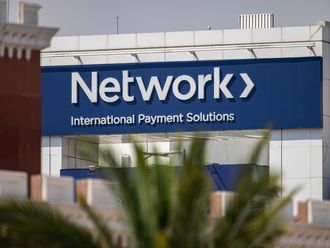
Dubai: Private wealth booked across borders reached $8.9 trillion in 2013, an increase of 10.4 per cent over 2012 but below the increase in total global private wealth of 14.6 per cent, according to The Boston Consulting Group’s (BCG) fourteenth annual global wealth management report.
“Offshore wealth is projected to grow at a solid compound annual growth rate (CAGR) of 6.8 per cent to reach $12.4 trillion by the end of 2018. The growth in offshoring is largely driven by investors in developing economies seeking higher levels of political and financial stability, greater depth in wealth management products and expertise, and geographic diversification.
”The offshore model will continue to thrive as wealth management clients leverage the differentiated value propositions that offshore centres provide. These include access to innovative products, highly professional investment and client relations terms, and security (which is most relevant for emerging markets),” said Markus Massi, Partner and Managing Director, the Boston Consulting Group.
According to BCG’s global wealth report, global private financial wealth grew reached a total of $152 trillion last year. The rise was stronger than in 2012, when global wealth grew by 8.7 per cent. The key drivers, for the second consecutive year, were the performance of equity markets and the creation of new wealth in rapidly developing economies.
The total number of millionaire households (in U.S. dollar terms) reached 16.3 million in 2013, up strongly from 13.7 million in 2012 and representing 1.1 per cent of all households globally. The US had the highest number of millionaire households (7.1 million), as well as the highest number of new millionaires (1.1 million).
Robust wealth creation in China was reflected by its rise in millionaire households from 1.5 million in 2012 to 2.4 million in 2013. The number of millionaire households in Japan fell from 1.5 million to 1.2 million, driven by the 15 per cent fall in the yen against the dollar.
“The growth of private wealth accelerated across most regions in 2013, although it varied widely by market,” said Massi. “As in 2012, the Asia-Pacific region — excluding Japan — represented the fastest-growing region worldwide, continuing the trend of high growth in the ‘new world’. But substantial double-digit growth increases in private wealth were also witnessed in the traditional, mature economies of the ‘old world’, particularly North America.”
Despite the growing regulatory pressures on offshore centres, most of the leading offshore assets booking centres continue to report brisk business. Last year Switzerland remained the leading offshore booking centre with $2.3 trillion in assets representing 26 per cent of global offshore assets. The country remains under tremendous pressure because of its significant exposure to assets originating in developed economies.
BCG study has forecast that in the long run, Switzerland’s position as the world’s largest offshore centre is being challenged by the rise of Singapore and Hong Kong, which currently account for about 16 per cent of global offshore assets and benefit strongly from the ongoing creation of new wealth in the Asia-Pacific region.
Assets booked in Singapore and Hong Kong are projected to Grow at CAGRs of 10.2 per cent and 11.3 per cent respectively through 2018 and are expected to account collectively for 20 per cent of the total global offshore assets by that time.
“Asia’s ongoing economic growth will lead to an increase in underlying assets (equities) and therefore to an increase in bookings across Asian financial centres. However, international assets will continue to be booked in the financial centre nearest to the target asset,” said Massi.
Manager benchmarking
BCG benchmarked the performance of more than 130 institutions — either pure private banks or wealth management units of large universal-banking groups. Wealth managers globally had another year of excellent growth in 2013, with assets under management (AUM) rising by 11 per cent. This performance, which followed assets under management growth of 13 per cent in 2012, was driven mainly by asset appreciation owing to rising equity markets. Yet despite sizeable AUM growth, profit margins remained largely flat as wealth managers continued to grapple with rising costs, notably those related to regulatory compliance.
The continuing development and adoption of digital communication will reshape the way products, services, and advice are provided to wealth management clients. Technology can change the dynamics of what constitutes competitive advantage. Yet many players have been unable to leverage digital technologies in a way that truly enhances their overall offering. As client expectations continue to rise, wealth managers must put a higher priority on developing sophisticated digital capabilities and integrating them seamlessly into their current channels and business models.












